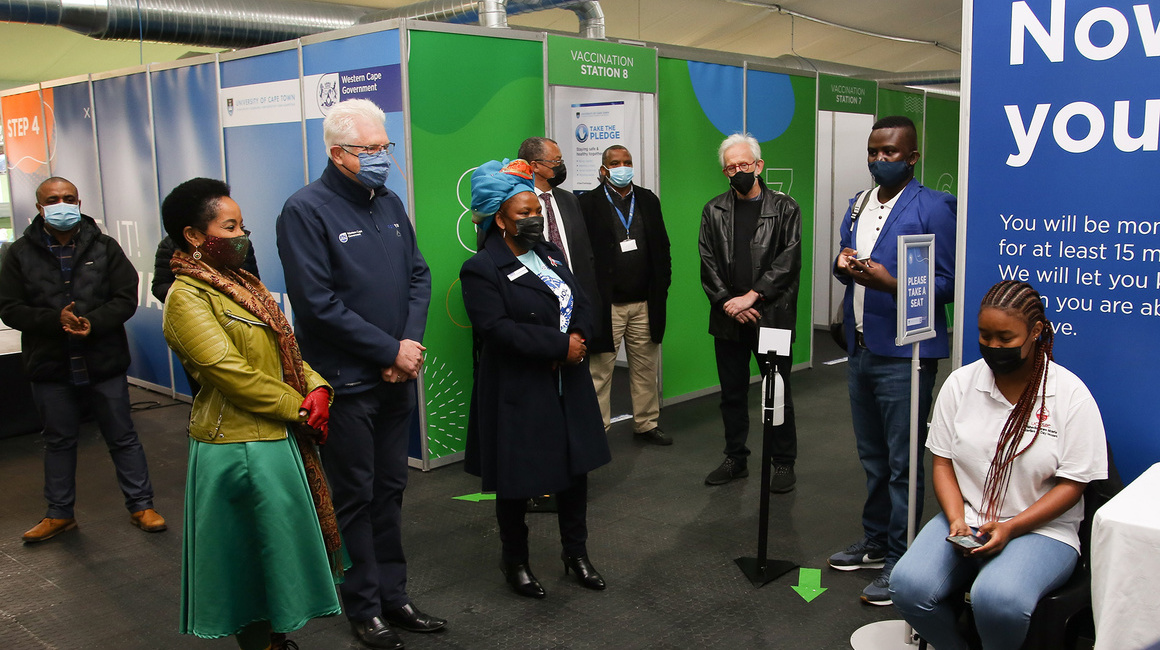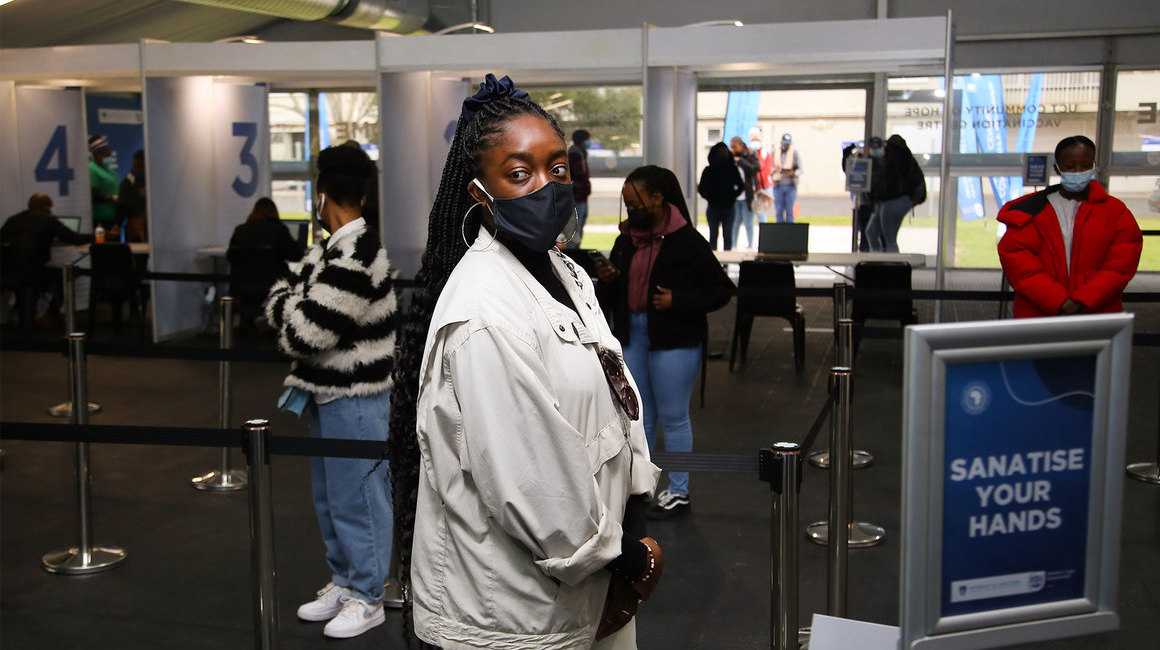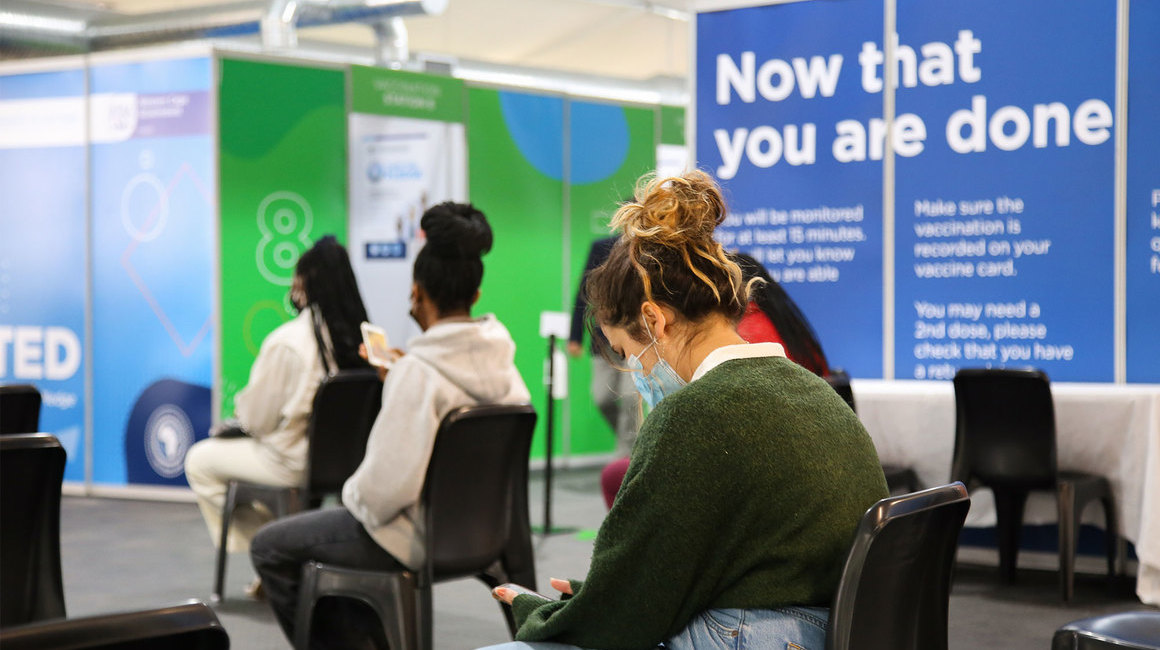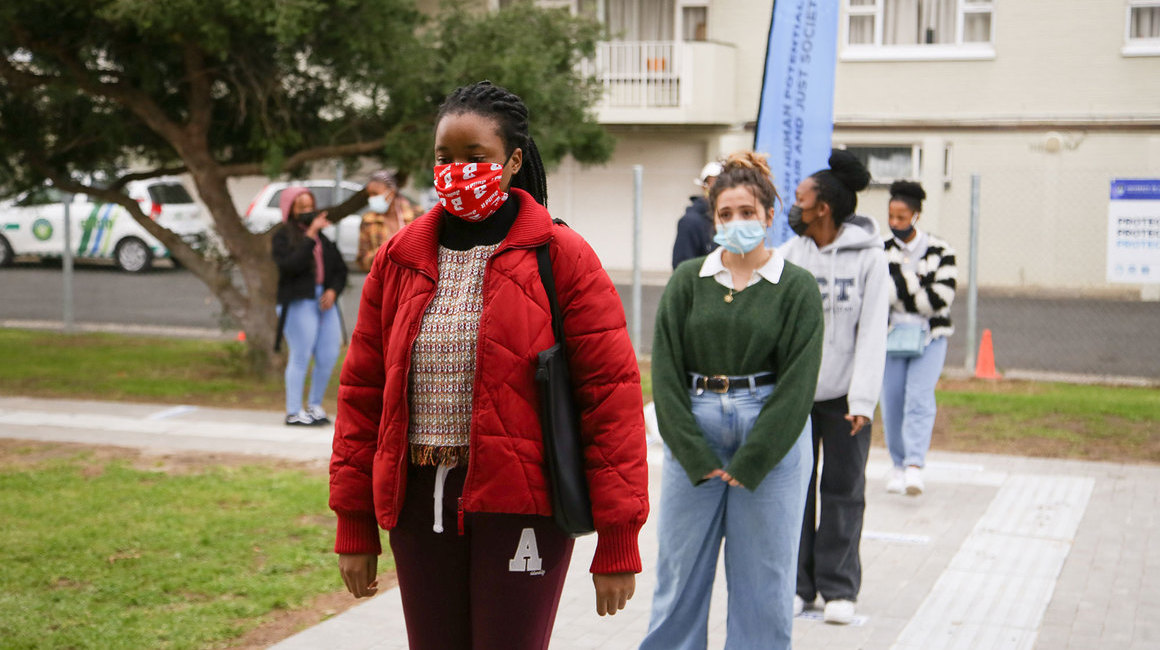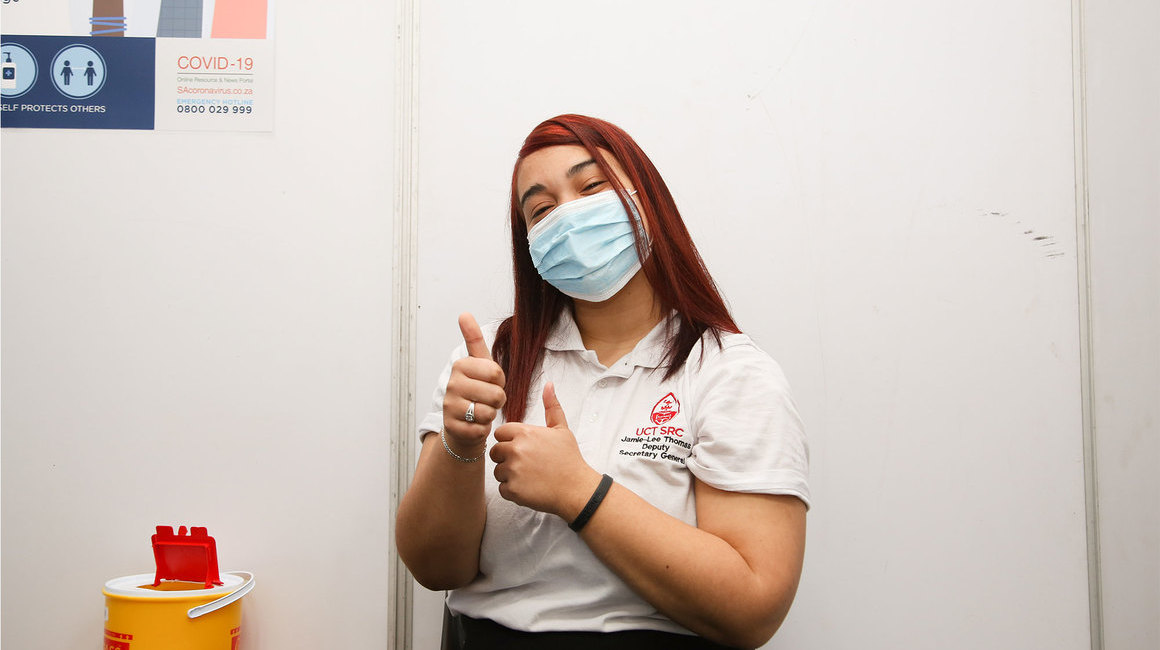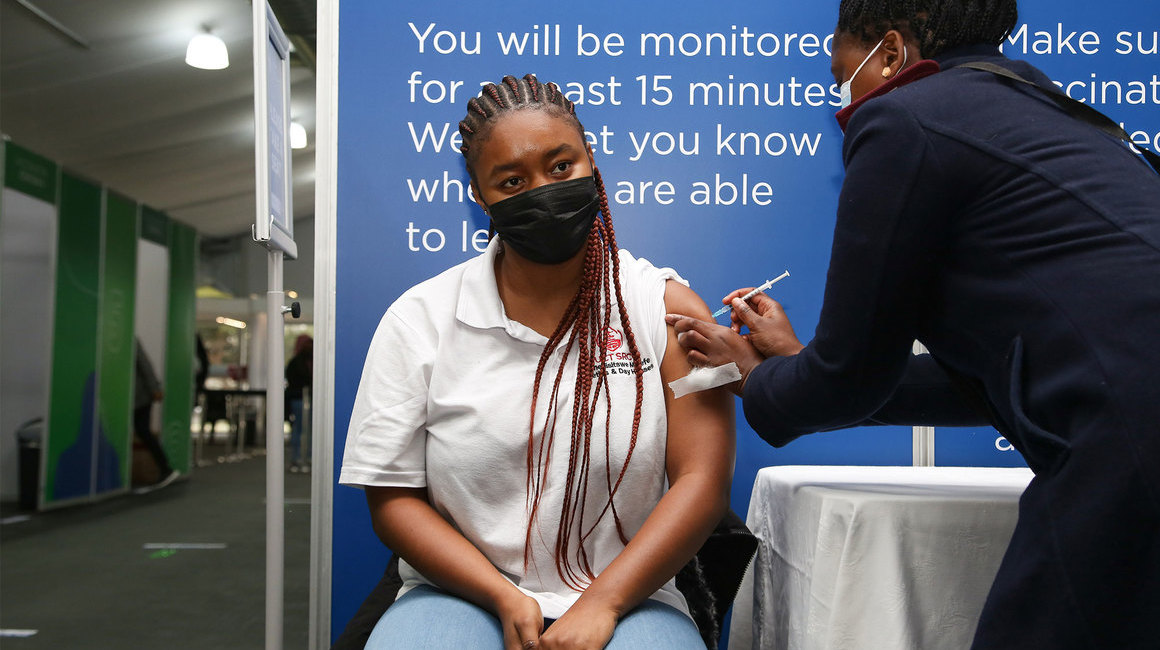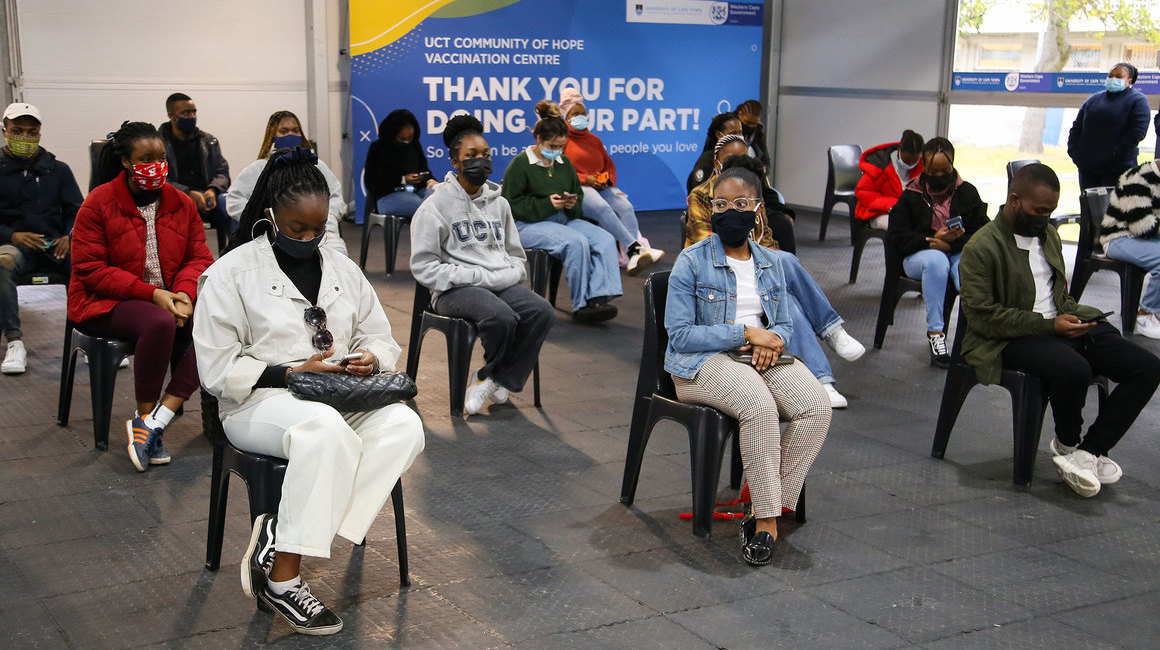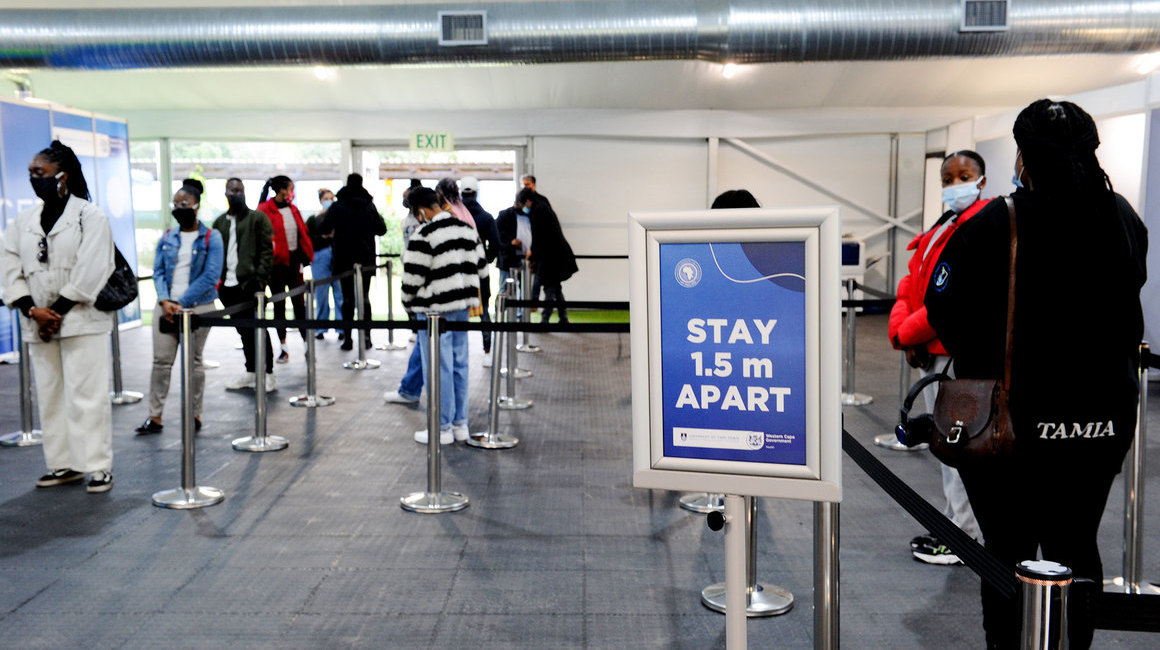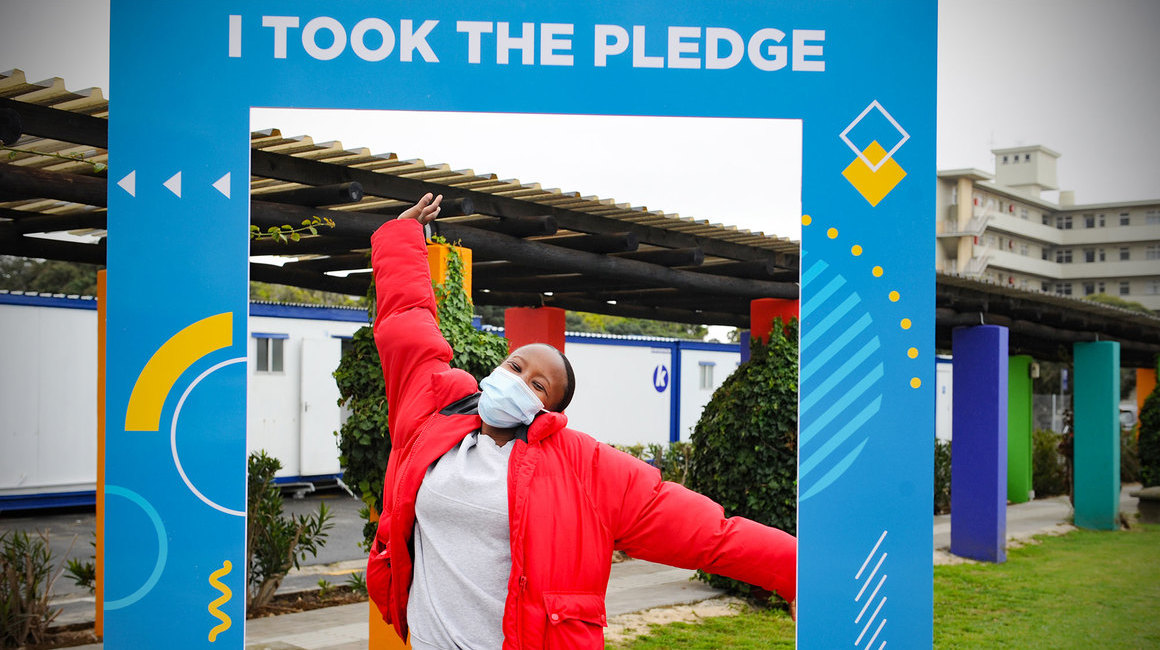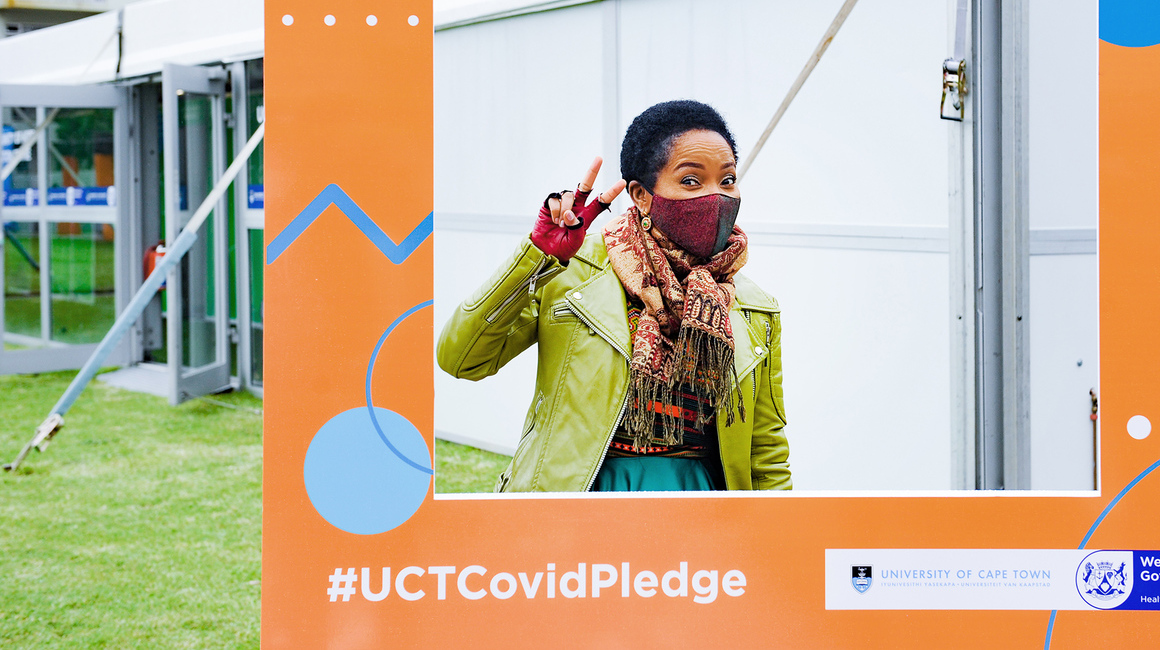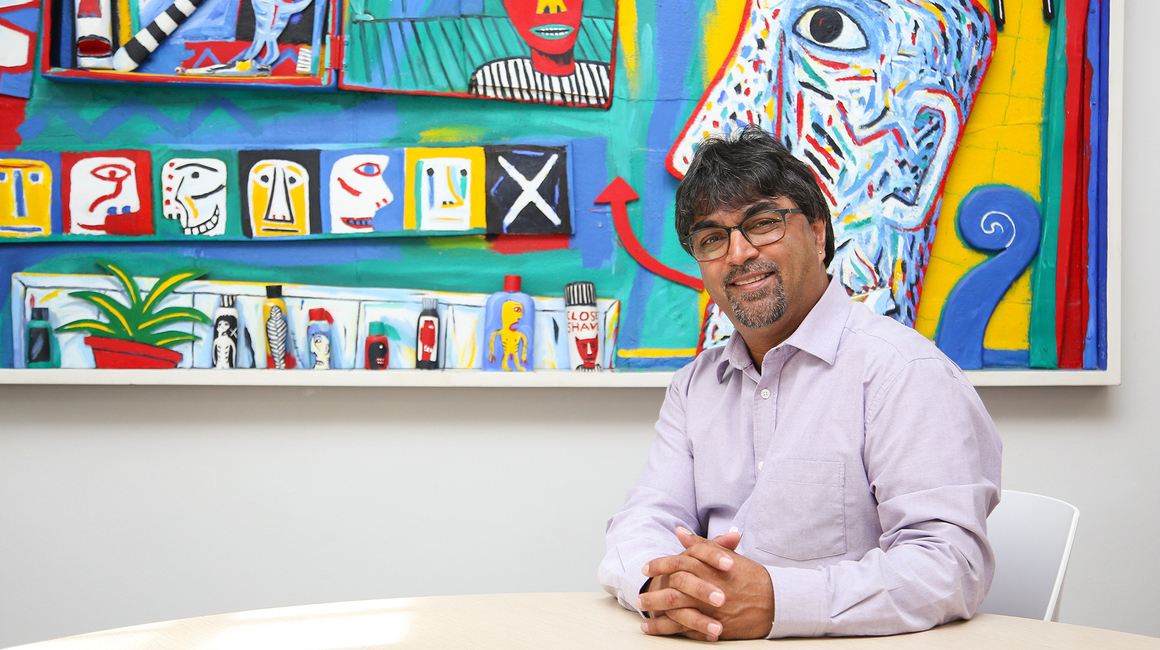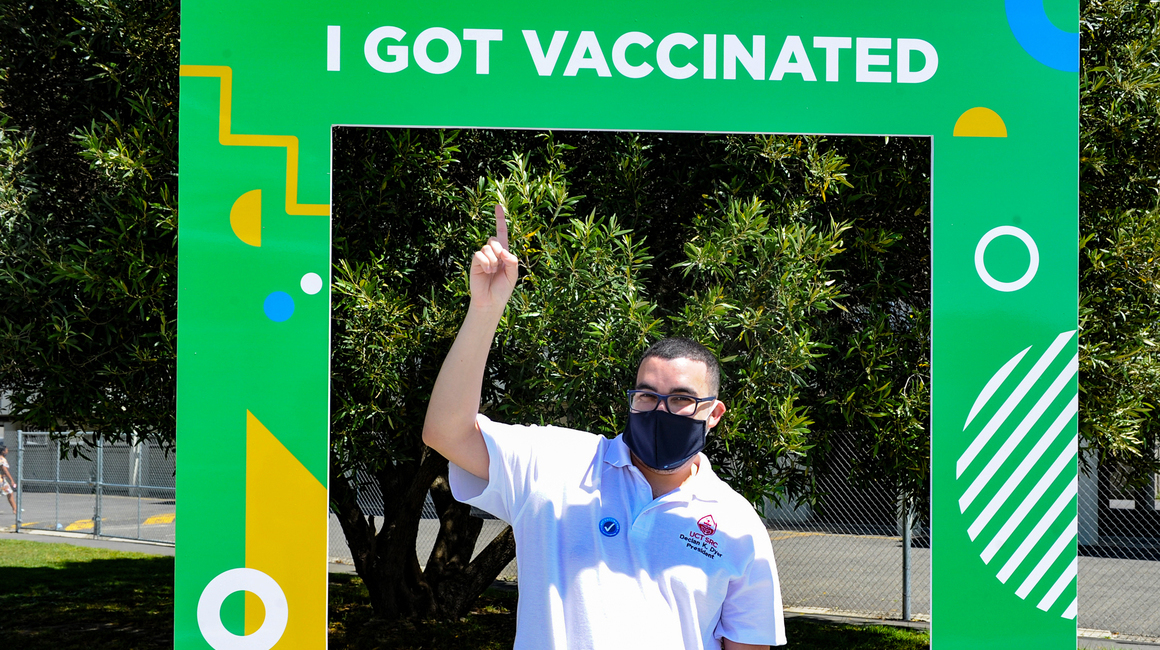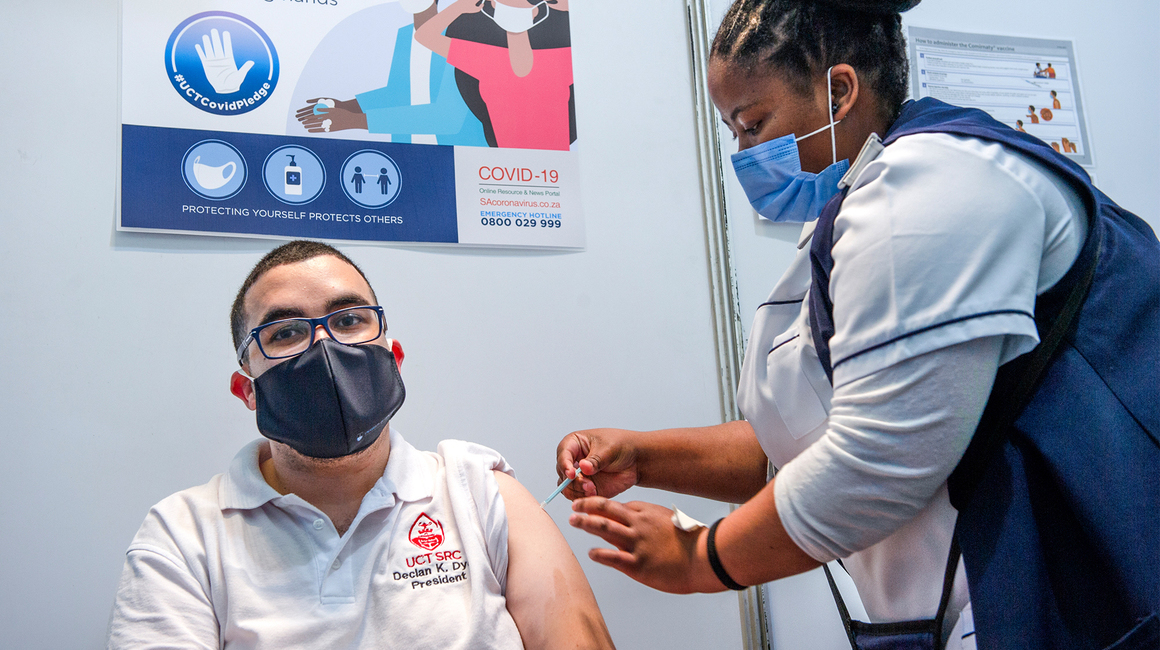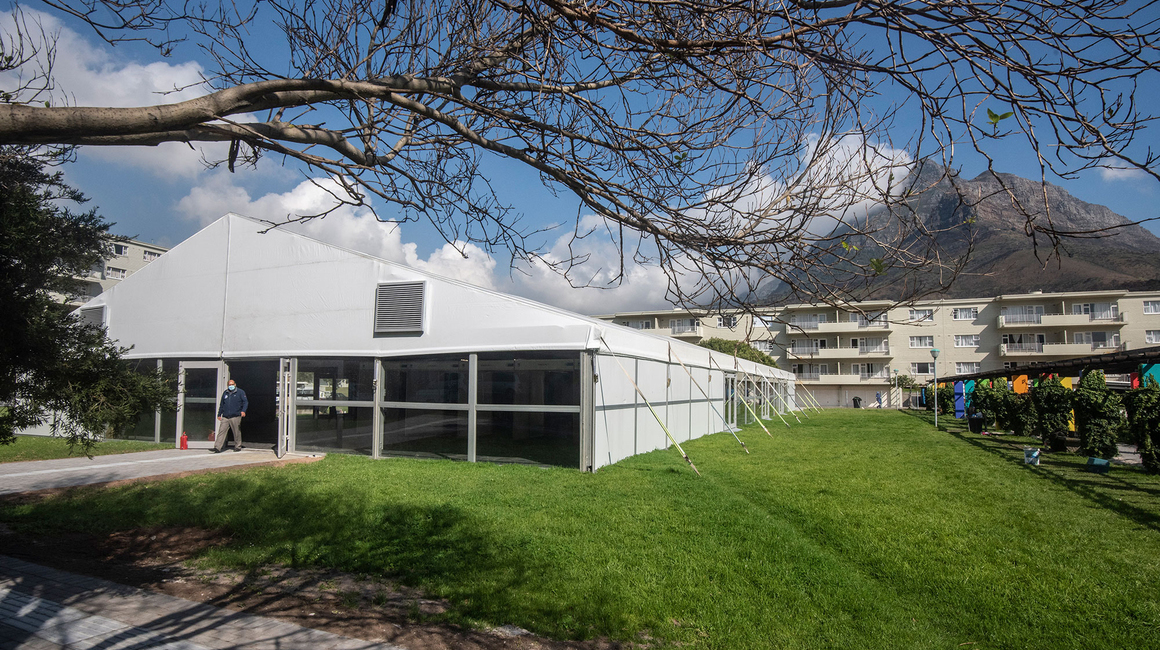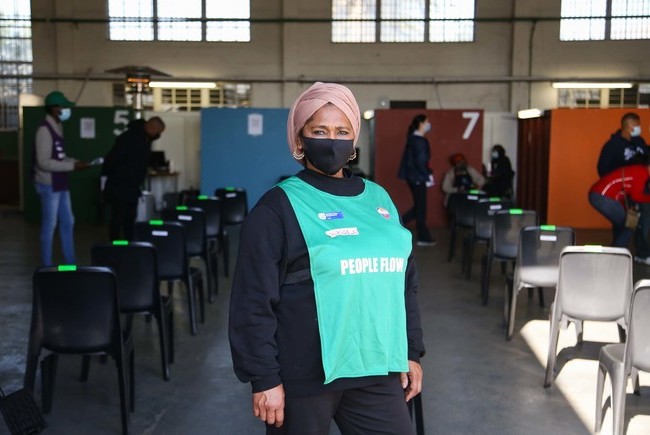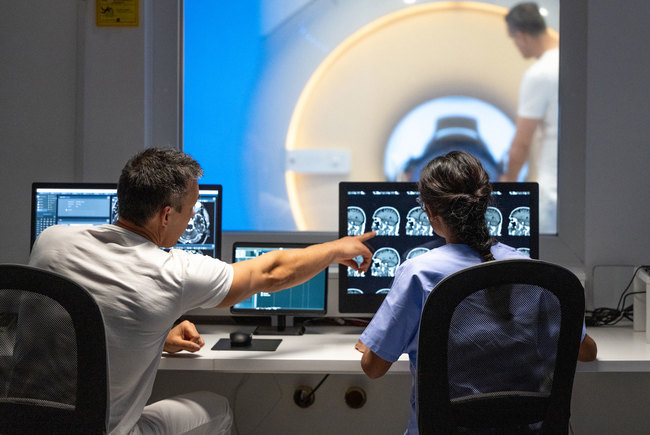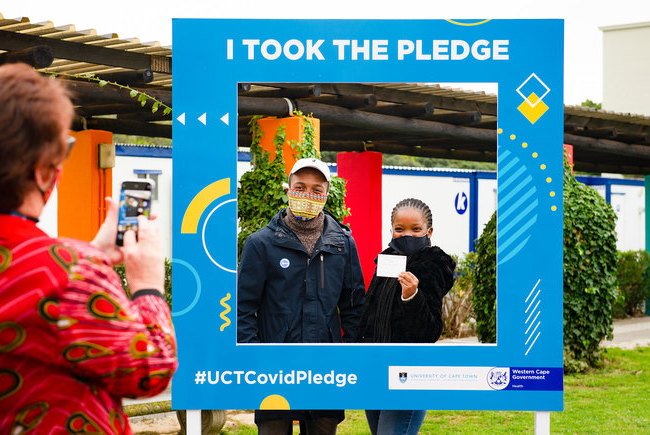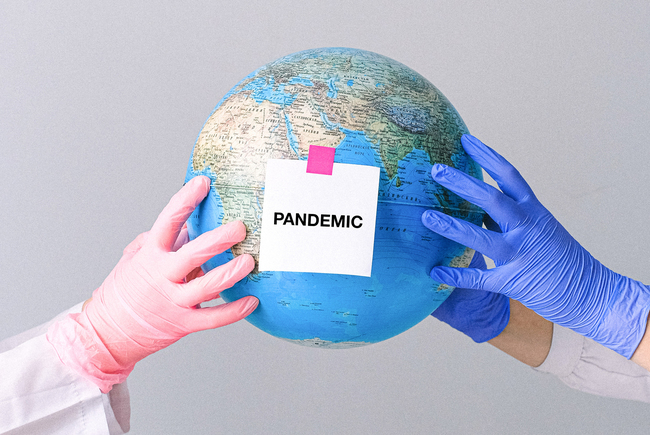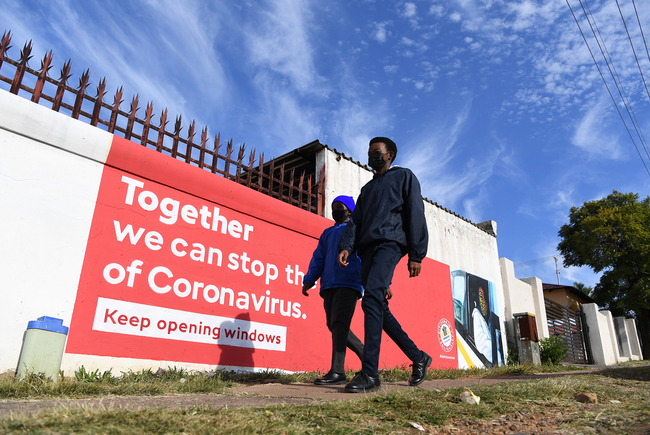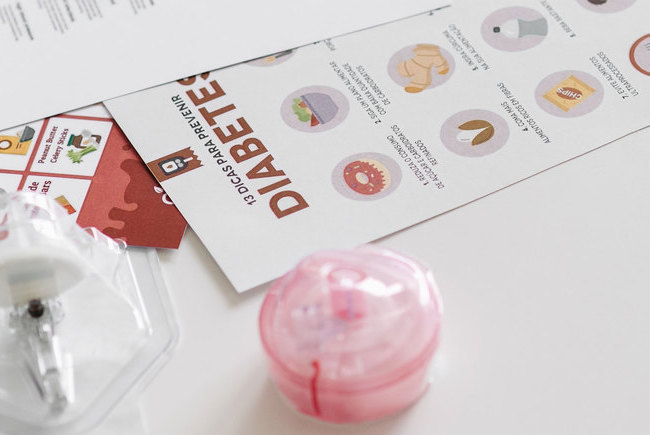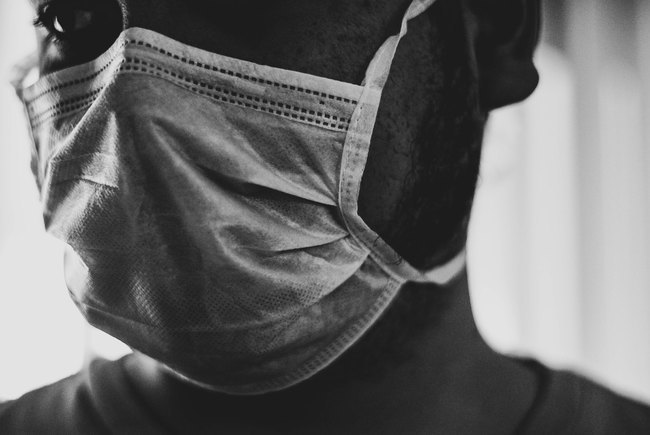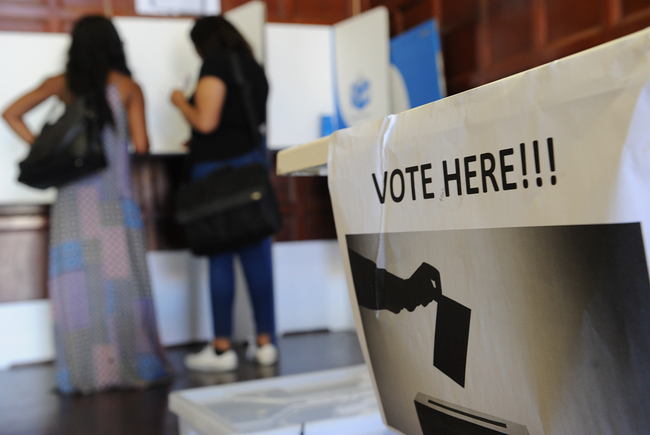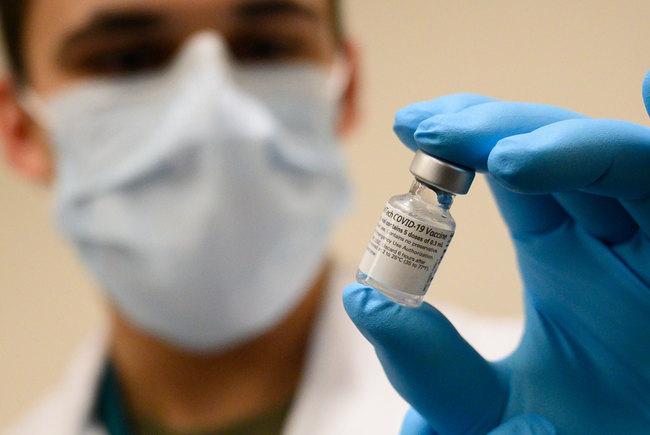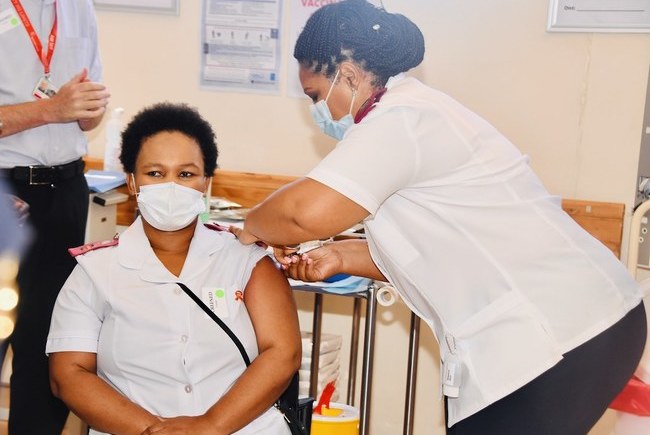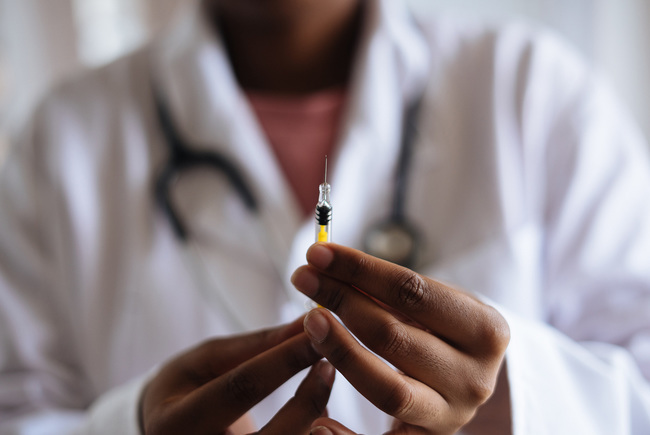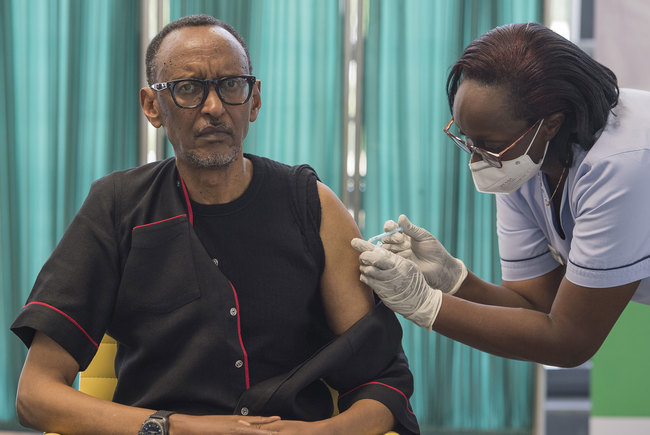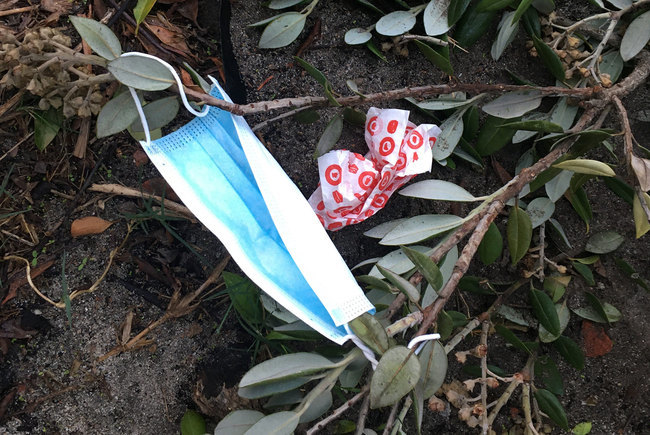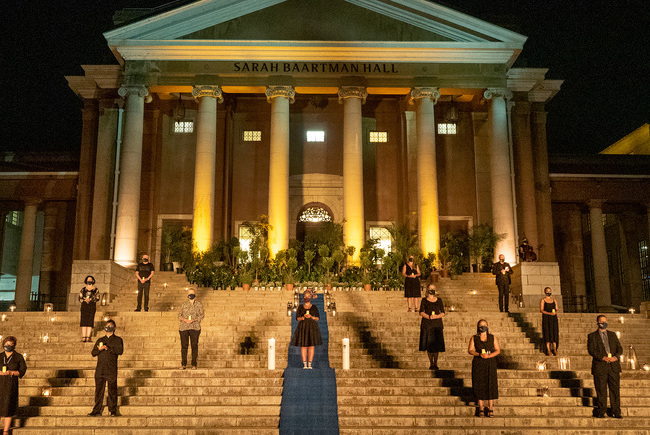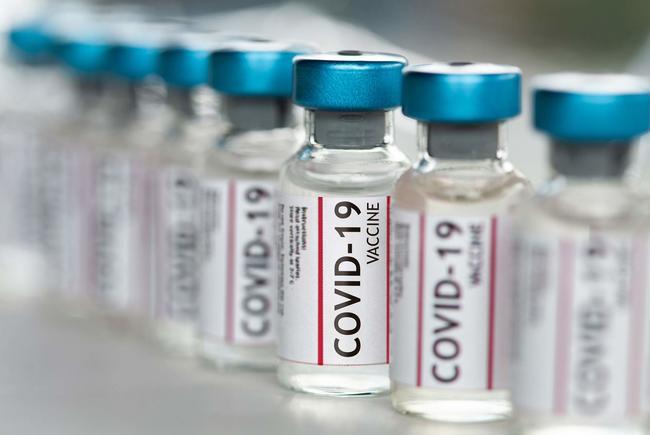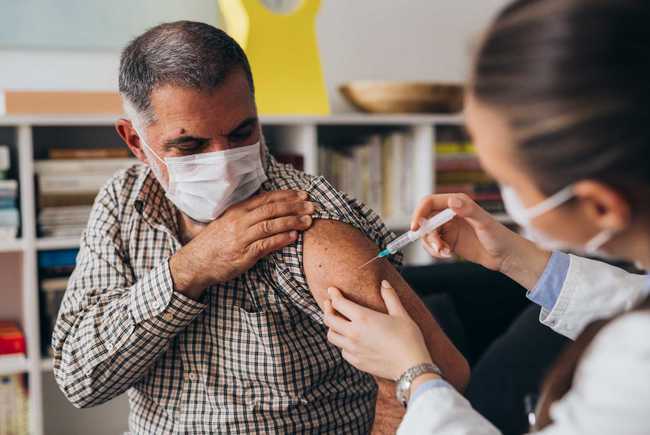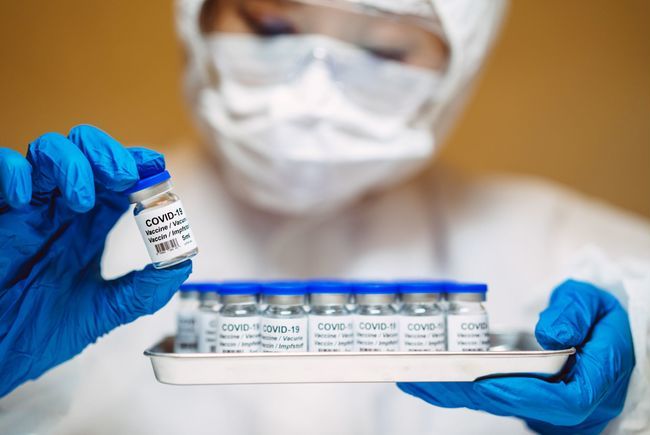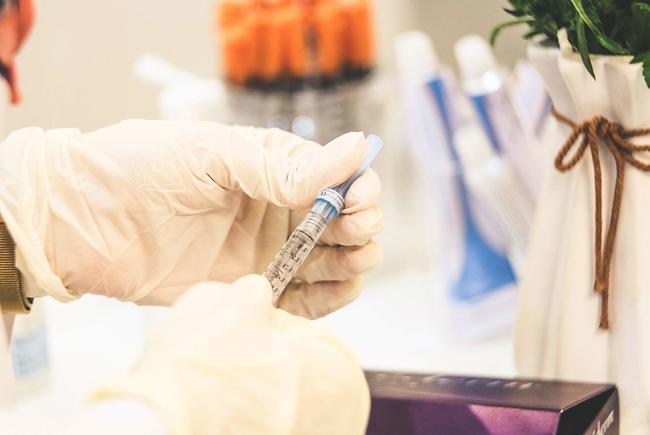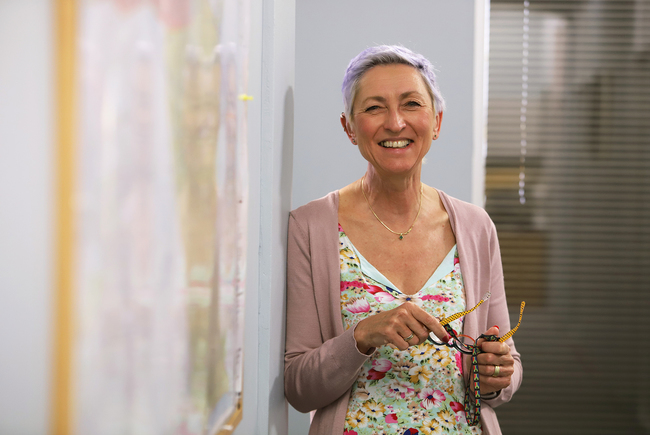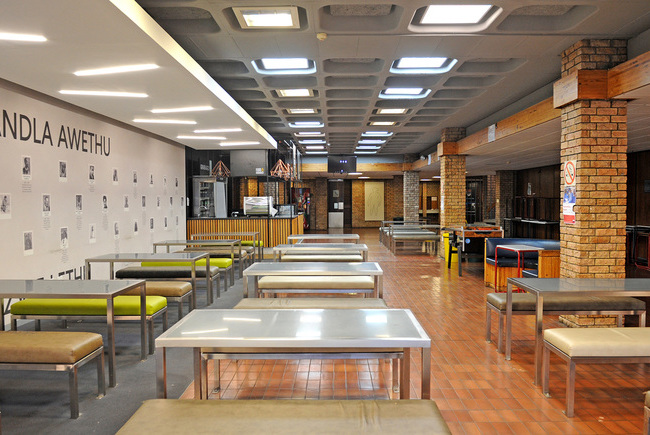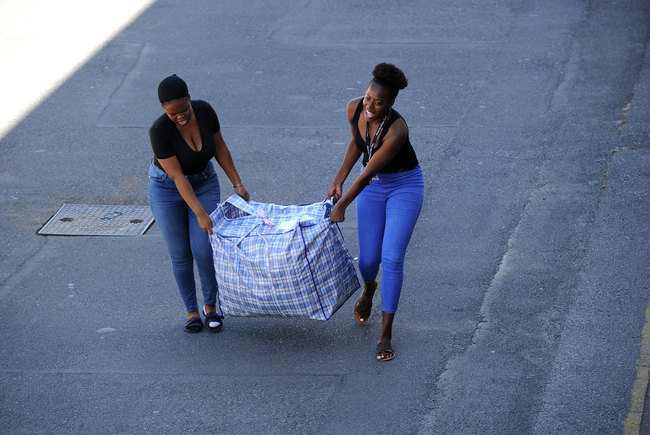Trial of potentially variant-proof vaccine ongoing in Western Cape
08 June 2021 | Story Elri Voigt. Read time 6 min.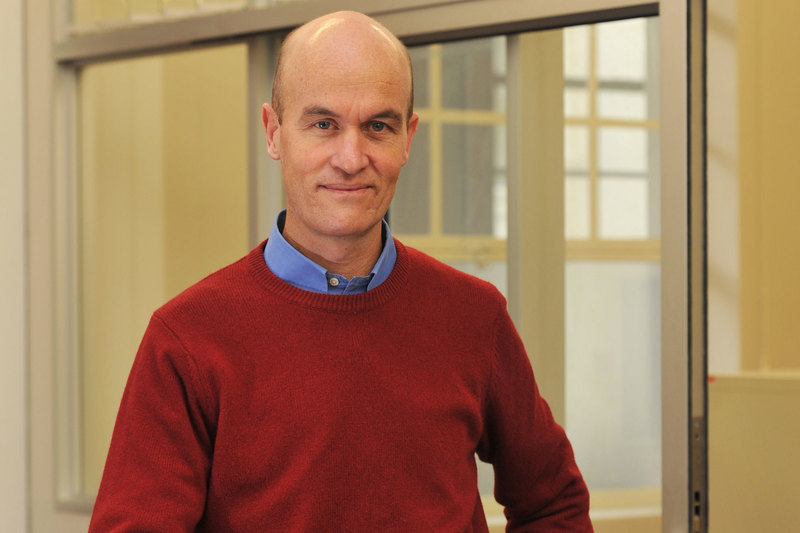
It’s been more than three months since University of Cape Town (UCT) researchers began the Phase 1 clinical trial of the hAd5 T-cell COVID-19 vaccine candidate. In this article by Spotlight, Professor Graeme Meintjes, the second chair in the Department of Medicine at UCT, the lead on the Wellcome Centre for Infectious Diseases Research in Africa’s Clinical Research Platform and a co-investigator on the trial, provides an update.
In February the University of Cape Town announced that a group of its researchers is expected to start a Phase I clinical trial of an experimental COVID-19 vaccine produced by the US company ImmunityBio. The experimental vaccine differs from current COVID-19 vaccines because it is designed to be more robust against the emergence of new variants.
Things have progressed significantly in the more than three months since then.
The second chair in the Department of Medicine at UCT and a co-investigator on the trial, Prof Graeme Meintjes says the Phase I trial, which started in March at the Wellcome Centre for Infectious Diseases Research in Africa’s (CIDRI-Africa) Khayelitsha clinical research site, has started and is still ongoing. Vaccines are usually only approved after findings from phase III trials have been published.
He says the first two cohorts of ten participants each have been enrolled and both received two subcutaneous injections of the vaccine, three weeks apart. One cohort received a higher dosage than the other.
“The purpose of that was to assess safety, so participants were followed up very carefully for side effects and for reactions to the vaccine. And the review of that suggests no major safety concerns,” he says. He adds that the Phase I trial design has since been adapted to include four more cohorts. This has been approved by the South African Health Products Regulatory Authority (SAHPRA), but the UCT ethics committee still needs to approve this before they can continue.
The four additional cohorts will include people who have had COVID-19 because the researchers want to look at the effect the vaccine will have on boosting existing immunity against COVID-19. Each cohort will have ten participants, bringing the expected total number of participants for Phase I to 60 people.
Routes of administration
Each person in these new cohorts will receive one dose of the vaccine, either through a subcutaneous injection, a sub-lingual method, which is the vaccine in a liquid form administered by being put under the tongue for a few minutes, a combination of subcutaneous injection and sub-lingual method, and finally, an intranasal administration.
The researchers will measure whether a person’s immune system can be sufficiently boosted through these different routes of administration.
“We’ll be measuring the antibody responses as well as the T-cell responses to the vaccine, but we do not have results yet,” says Meintjes.
The trial will continue at the Khayelitsha clinical research site, with participants and volunteers coming from across Cape Town. “We would hope to complete enrollment within the next two months… pending approval from the ethics committee,” says Meintjes.
Plan for Phase II/III trial
Meintjes confirms plans are underway for a larger Phase II and Phase III trial in South Africa, which will be headed by the South African Medical Research Council (SAMRC).
Details of the trial design will however only be made public once SAHPRA has given the green light for the trial to proceed. It for example remains to be seen to which vaccines the ImmunityBio vaccine will be compared – we think it is unlikely that placebos will be used in future trials given that we already have vaccines that work very well.
What makes this vaccine different?
The ImmunityBio vaccine candidate differs in several ways from the COVID-19 vaccines currently in use, says Meintjes. The vaccine has been designed in a way that could potentially offer a broader immune response that is long-lasting. The potentially broader immune response provides the possibility of offering protection against future SARS-CoV-2 variants.
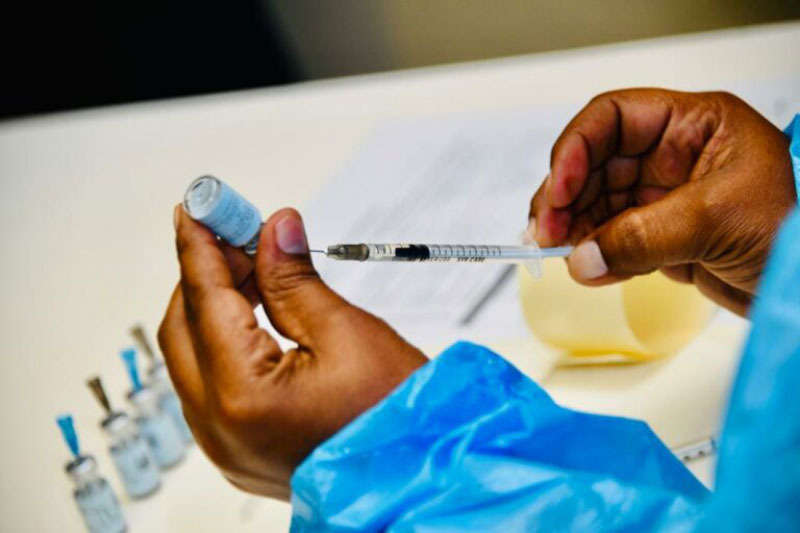
Meintjes explains that right now, most of the COVID-19 vaccines are designed to produce an immune response against the spike protein of the virus. Yet, this particular part of the virus is prone to mutations, which have given rise to the different variants of the virus that have been seen worldwide.
According to the head of the Department of Clinical Virology at Lancet Laboratories, Prof Eftyhia Vardas, the spike protein is the part that sticks out of the surface of the virus. “[It] is used as the receptor binder. It’s like a lock and key mechanism that binds on your own cells… It binds to that, locks in, and actually infects the cells,” she explains.
She adds that in order to evade attacks by the immune system, the virus mutates and becomes unrecognisable to our immune system.
This often happens with other viruses, like the influenza virus, but the SARS-CoV-2 virus is very clever, says Vardas because it is mutating at the spike protein, at the site where it binds with the human receptor cell.
Dual defence
The ImmunityBio vaccine seeks to combat the mutations in the spike protein by adding an extra line of defense. It aims to offer a two-pronged or dual defense, says Meintjes, because the vaccine contains two proteins from the SARS-CoV-2 virus.
He says the vaccine still contains the spike protein, as well as a more stable protein, the nucleocapsid.
The nucleocapsid, Meintjes says, is found on the inside of the virus and is involved in the packing of its genetic material. So far, he says, the nucleocapsid of the SARS-CoV-2 virus appears to be less prone to mutation and remains more stable over time.
He explains that targeting nucleocapsid could potentially provide more durable and long-term protection against different variants of the SARS-CoV-2 virus because the immune system will recognise the nucleocapsid even when the spike protein changes.
“The hope is that by including the nucleocapsid you would generate a vaccine response that covers emerging variants, those that have emerged and those that might emerge in the future,” he says.
A human-adenovirus based vaccine
“This vaccine comes packaged in a human adenovirus vector. It’s a modified viral vector,” says Meintjes.
Director of the Africa Health Research Institute (AHRI), Professor Willem Hanekom, explains that in a viral vector vaccine like this one, a vector is basically just a carrier for the piece of the virus you want the immune system to respond to. He adds that a vector is needed in order to stimulate the immune system’s response, and a viral vector is effective because it is foreign to the immune system which will stimulate an immune response.
“What scientists do is they take these adenoviruses and they rip out their guts, they rip out the dangerous parts of them,” he says. “And they replace that with the parts of the virus that you want the immune system to see, so the parts of the coronavirus that you want the immune system to see… [then] the immune response that you develop is against that [part of the virus].”
In this case, the human adenovirus known as hAd5 is simply the carrier or vehicle that gets the two proteins of the SARS-CoV-2 virus into the body so it can be seen by the immune system.
However, according to Hanekom, if you have previous immunity against the adenovirus (which causes the common cold) being used in a vaccine because you have been exposed to it before, the immune system will destroy it before it is exposed to the SARS-CoV-2 proteins. This is why the human adenovirus used in the ImmunityBio vaccine (hAd5) has been modified, so it is now a second-generation adenovirus.
“They’ve modified the adenovirus so it will still work and still be seen by the immune system even if there is pre-existing immunity because they’ve taken out the parts that the pre-existing immunity sees,” he says.
Public Health Medicine Specialist, Nisha Naicker points out that the Johnson and Johnson COVID-19 vaccine already uses a human adenovirus known as Ad26, and the AstraZeneca vaccine uses a chimpanzee adenovirus.
Potentially stronger T-cell response
Using nucleocapsid in the ImmunityBio vaccine might enhance the immune response to SARS-CoV-2 in other ways. Meintjes says the vaccine is specifically designed to elicit strong T-cell responses to the nucleocapsid, and such responses have been observed in animal studies.
“Obviously one purpose of these studies is to see whether this design element generates those strong T-cell responses in humans as well,” he says. “All COVID-19 vaccines elicit T and B cell responses, it’s not one or the other. But this (vaccine) is specifically designed to enhance those T-cell responses.”
Naicker explains that B-cells and T-cells are part of the body’s adaptive immune response, which is activated by the immune system being exposed to a foreign protein, in this case, the SARS-CoV-2 virus. The first time your immune system is exposed to the virus, you will develop antibodies to it, through B-cells, Naicker says. When you come into contact with the virus again, you already have those antibodies, in the form of memory B-cells.
“This is what a vaccine does. A vaccine contains an antigen (part of the virus) and once injected stimulates an immune response that will block or destroy a virus,” she adds.
Vardas says that with the ImmunityBio vaccine, B-cells and memory B-Cells will be formed that will remember the spike protein and the nucleocapsid and how to attack it. She likens this to a sniper attack. She explains that when a memory B-cell detects the spike or nucleocapsid protein, it signals for the production of B-cell antibodies. These antibodies then coat the outside of the virus, which signals the T-cells to attack and essentially “eat up” the virus-infected cells.
There are two types of T-cells, explains Vardas – CD4 cells which attack the virus, and CD8 cells, which also form a memory cell as the B-cell does. “You’ll have groups of CD4 and CD8 cells that are spike protein-specific and groups that are nucleocapsid specific so improving that kind of attack to two sides of the war,” says Vardas.
UCT’s response to COVID-19 in 2021
COVID-19 is a global pandemic that caused President Cyril Ramaphosa to declare a national disaster in South Africa on 15 March 2020 and to implement a national lockdown from 26 March 2020.
UCT is taking the threat of infection in our university community extremely seriously, and this page will be updated regularly with the latest COVID-19 information. Please note that the information on this page is subject to change depending on current lockdown regulations.
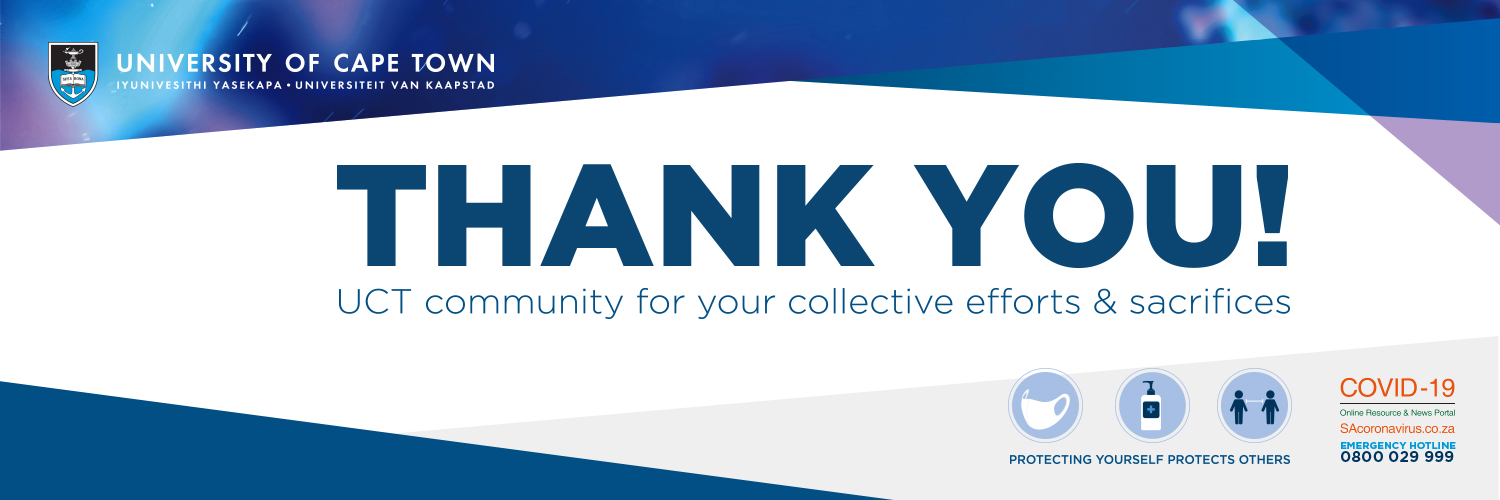
Global Citizen Asks: Are COVID-19 Vaccines Safe & Effective?
UCT’s Institute of Infectious Disease and Molecular Medicine (IDM) collaborated with Global Citizen, speaking to trusted experts to dispel vaccine misinformation.
If you have further questions about the COVID-19 vaccine check out the FAQ produced by the Desmond Tutu Health Foundation (DTHF). The DTHF has developed a dedicated chat function where you can ask your vaccine-related questions on the bottom right hand corner of the website.
IDM YouTube channel | IDM website
UCT Community of Hope Vaccination Centre
The University of Cape Town in partnership with the Western Cape Government (WCG) have reinforced our commitment to bringing hope to the residents of the Mother City with the launch of the world‑class Community of Hope Vaccination Centre that opened its doors on Monday, 30 August 2021.
The site is located on Main Road in Mowbray – in the Forest Hill Residence – and access is from Broad Street. The site is open every Monday to Friday from 08:00 to 15:00 and on Saturday from 09:00 to 13:00. Please allow time for attending to COVID-19 protocols and arrive as early as possible at the vaccination centre.
Frequently asked questions
News and views
Campus communications
2021
Media releases
Read more
UCT statements related to COVID-19 vaccinations
This is a space created for all formal bodies and structures within the university community to share their opinions on the need for a mandatory COVID-19 vaccine policy. Please note that some editorial judgement may be applied if the received statements go against any constitutional rights, and that no correspondence will be entered into, statements will be posted unedited and as received. Statements can be sent to opinions@uct.ac.za.
Commemorating a year of COVID-19
At midnight on 26 March 2020, South Africa went into the first nationwide hard lockdown. A year later, we remember those who have died and those who have been affected by COVID-19, as well as the pandemic’s effects across society and campus. We are especially grateful for the front-line health workers who have done so much for so many.
#UCTCOVIDPledge – social media elements
Customised Facebook frames and Instagram stickers are now available on those social media platforms. Watch the tutorial videos here to see how easily you can show your support for the #UCTCOVIDPledge.
In an email to the UCT community, Vice-Chancellor Professor Mamokgethi Phakeng said:
“COVID-19, caused by the virus SARS-CoV-2, is a rapidly changing epidemic. [...] Information [...] will be updated as and when new information becomes available.”
We are continuing to monitor the situation and we will be updating the UCT community regularly – as and when there are further updates. If you are concerned or need more information, students can contact the Student Wellness Service on 021 650 5620 or 021 650 1271 (after hours), while staff can contact 021 650 5685.

















